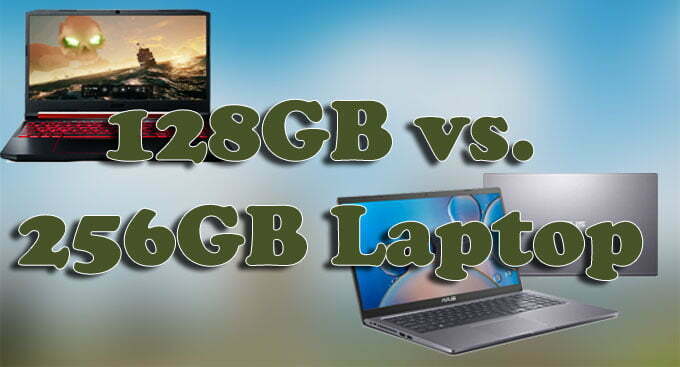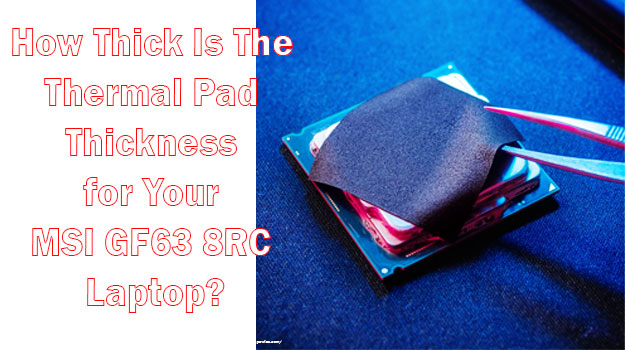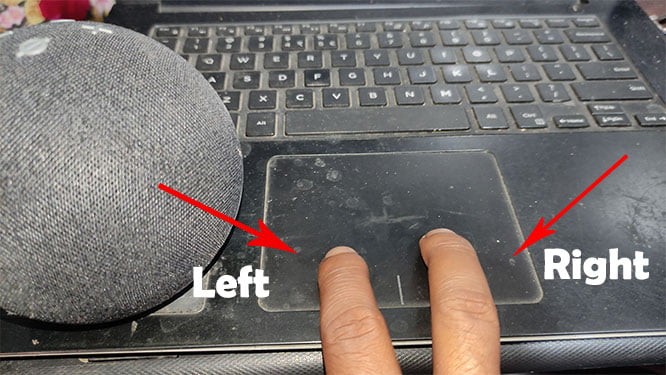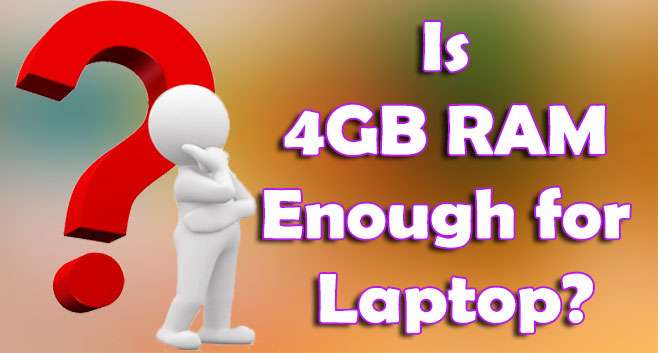13 or 15 Inch Laptop for College? A Head-to-Head Battle!
Are netbooks relevant anymore? They are kind of obsolete since you can buy a 13 or 15-inch laptop for college with the same type of portability but better functionality.
The portability feature is what made netbooks famous. They were thin and light while the battery virtually lasted a whole day. You could carry it around and not feel that it’s even there.
Time passed, newer technology arrived. Now, we have thin and light laptops with great processing potential and improved battery life.
Processing power and multitasking were two important features missing from netbooks. But things changed with the introduction of mainstream processors in 13 and 15-inch laptops.
Should I Get a 13 or 15 Inch Laptop for College?
Now, with both the options available, which is better suited to a student’s lifestyle? Of course, a 13-inch laptop will be more affordable and easier to keep in the backpack than a 15-inch laptop.
13-inch laptops have better performance when it comes to battery life. Although they pack a smaller battery due to size constraints, due to lower PPI, the screen consumes a lot less energy. And that makes it a good choice for portability.
However, if you work with visual technology and software for your study, you are better off with a larger screen. You don’t know when you need to open up your laptop and start working.
Since you’ll be on the move during the day for study reasons, you can’t be around your external monitor always. And that makes it a good reason to opt for a smaller 15-inch laptop.
Laptops with a larger screen have another advantage. These have a bigger chassis, so fitting more components inside is possible. It also makes for a better cooling system which means better performance.
And finally, the price range is another factor determined by size. Large 15-inch laptops will cost more, unsurprisingly. These usually come with a better base configuration than smaller laptops. So, it all comes down to budget and personal preferences.
3 Reasons You Can Go for 13 Inch Laptop for Your College Life
Still can’t figure out whether or not a 13-inch laptop will suit you? Then, maybe you aren’t looking at the core factors that make it a compelling option. Here are the 3 main reasons to go for it.
Best Portability
It’s simple logic. A 13-inch laptop will be quite small compared to a 15-inch laptop. Putting it into a backpack will be a much better experience. A decent 13-inch ultrabook will fit in your backpack like it’s not even there. And they’re so slim that your fingers are will seem thicker.
If you’re always on the move, a 13-inch laptop will serve you the best.
Long Battery Life Possibility
If you’re always on the go, you’re going to need a lot more juice in your laptop than an average guy. And 13-inch Ultrabooksare the solution.
Laptops such as Dell’s XPS series, Apple’s Macbook devices are only but two laptops among many that provide more than 10 hours of battery life. Astonishingly, even 7-8 hours of battery life is taken for granted these days. Such is the advancement of technology.
Lightweight
Not to mention, 13-inch laptops are the lightest laptops you’ll find on the market. These laptops are slim and made of metal machined with CNC. Nowadays, you’ll find 13-inch laptops weighing around 1.5 kilograms or less.
Our Recommended Top 4 Best 13 Inch Laptop in 2021
Here is a shortlist of our favorite 13-inch laptops. They are from different price ranges, so it’s not a comparison. It’s more of an evaluation.
Apple MacBook Pro – Our Best Pick
Putting Apple’s Macbook Pro at number one is a no-brainer. For the last decade, Macbook Pro devices have taken up the top spot in this category. Despite the trademark price range, it has a large loyal customer base. There must be a reason for it, right?
There are multiple reasons to get a Macbook Pro as a student if you can afford one. The first reason would be its highly portable nature. No one can deny that Macbooks are the benchmark when it comes to portability.
With a slim and slick body, it doesn’t take up a lot of space inside your backpack. And that translates into a fairly lightweight laptop. It weighs only 1.4 kilograms.
In 2021, Apple’s Macbook Pro has turned everyone’s head by revolutionizing battery performance. Thanks to the extremely efficient and Powerful M1 processor, this laptop will run you through your whole working day and more. Apple claims it’s rated for 20 hours. In a real-world test, it lasted almost 17 hours!
The processor outranked Intel and Ryzen’s top processors in terms of both power and efficiency. You won’t be using even half of its processing power as a student.
Short Verdict
Even if you could debate whether a Macbook is worth it or not, it doesn’t hold any water now with the addition of M1 chipsets. It’s worth it even with Apple’s premium price.
Apple MacBook Air – Also Great
If you want to stay in the Apple ecosystem without spending a lot behind an MBP, the Macbook Air is also a great option.
It’s basically a dumbed-down version of the Macbook Pro. At least, it can be said about the M1 MacBooks that no matter which one you buy, you’re investing for the future.
Don’t think that you’re settling for less if you take the MacBook Air. It’s just as amazing as its big brother or even better. It’s certainly the case when it comes to battery life.
The Apple MacBook Air M1 lasts up to 18 hours of multimedia and web surfing despite having a smaller battery. It’s not a miracle since the M1 processor in it will not reach its true potential due to the lack of adequate cooling.
Apple didn’t use any cooling fan inside the Macbook Air to keep the size small. This fanless design makes it a great device for silent work. You won’t hear a thing while it’s running.
It’s lighter than the 13.3-inch Macbook Pro M1 by 0.2 pounds. As for thickness, it’s less than 1 inch, 0.64 inches to be exact. Just holding the device is itself a treat.
Short Verdict
In short, for most students, the combination of long battery life and portability makes Macbook Air the best choice.
Dell 9310 XPS – Best 2 in 1 Laptop
The thing is that many people find it hard to leave the Windows OS no matter how good the Macbooks become. And it’s quite difficult for Windows-based laptops to reach Apple’s efficiency level. Dell’s XPS series laptops come pretty close, especially the XPS 9310 model.
What makes this Dell 9310 XPS laptop standout is its overall design internally and externally. With a thin bezel, ultra-thin metal body, it’s nothing less than eye-candy. It’s as pleasing to look at as it is to carry around. With a weight of 1.4 kilograms (it’s equal to Macbooks!), it’s among the lightest Ultrabooks available.
This newest addition to the XPS series has Intel’s latest offering inside. It’s the 11th gen i7-1165G7. It’s a lot more powerful processor than you’ll ever need as a student. For memory, it starts from an 8-gig module, which should be upgraded to 16 gigs.
What you need is good battery life. Unfortunately, Dell’s claim of 14 hours of battery backup hasn’t proven to be true. There have been issues. After a full charge, it only lasted for 6 hours. Maybe it’s the OLED panel to be blamed. It’s disappointing, to say the least.
With all that being said, the feature that might make it worth buying is its 2-in-1 design.
Short Verdict
If you stay outside your house or office for more than 6 hours, this isn’t for you. It could have been the ultimate solution, but the battery life is disappointing.
HP Envy 13 – Best Affordable Laptop
Let’s be honest, most students won’t be able to afford a Macbook unless it was gifted to them. After researching the market for a while, we’ve found that the HP Envy series delivers the highest value per dollar.
The HP Envy 13 is powered by Intel’s top-of-the-line 11th gen core i7-1165G7 quad-core processor. It can easily handle any enterprise-level software if you were to run it for your studies. Multitasking on this laptop was a breeze, thanks to 8 GB of DDR4 RAM.
But that’s not why it’s such a good laptop. What makes this a hard-to-pass option is its long battery life. For a Windows laptop at this price, it scored a ridiculous 11 hours and 20 minutes of battery backup on Wifi. We don’t think it’s fair to expect more from this laptop.
To add more flair to this laptop, we deem it a champion of portability. This 16mm thick Ultrabook weighs a meager 1.38kg which is less than the latest Macbook Air M1!
Another feature that’s worthy of praise is the camera kill switch. It’s an important addition, especially when cyber security is a hot discussion.
What was disappointing was the lack of a spare RAM slot and HDMI port. You can use the Thunderbolt port instead.
Short Verdict
It’s not hard to recommend this laptop for a college student. This is hands down the best 13-inch laptop for college under $1000.
3 Reasons You Can Go for 15 Inch Laptop for Your College Life
15-inch laptops exist for a reason. So, who among the college students should be looking into 15-inch laptops? See if these 3 reasons relate to you.
Less Strain on Your Eyes
It might not seem like it, but 15-inch laptops are a lot bigger thanks to their 15.6″ screen. All 15-inch laptops come with higher resolution than your 13.3-inch displays. And that translates into higher pixel density and more brightness. And these will lessen the strain on your eyes.
More Spacious Keyboard
Most 13-inch laptops have a tenkeyless keyboard layout. On the other hand, 15-inch laptops come with a full-sized keyboard.
Better Viewing Experience
A bigger laptop means a bigger display and better resolution. It’s pretty common to see 15.6” displays incorporating FHD and QHD resolutions which are rare in 13.3” screens.
If you’re a student dealing with a lot of documents (e.g., Excel files) or your study has a lot to do with videos and stuff, a 15.6″ screen is your best bet (unless you use an external monitor).
Even if you use an external monitor, it’s not a viable option when you’re out of your dorm.
Our Recommended Top Rated 4 Best 15 Inch Laptop in 2021
If you’re convinced about buying a 15-inch laptop, consider these 4 laptops. They are the most talked-about devices on the market.
ASUS ROG Zephyrus Duo SE – Our Top Pick
When talking about quality products, Asus is never far away. They have built quite a standard for the brand with some hiccups here and there. Asus’s ROG series wasn’t impressive up until the release of this Zephyrus Duo SE model. This is arguably the best option when it comes to feature-rich laptops.
Does it mean it’s a good laptop for college students? We can’t say that for everyone. It will cater to a specific group of students ranging from Computing sciences to Multimedia related subjects.
This laptop has two strong suits. One is its computing power backed by the 8-core Ryzen 9 5900HX. It’s a pretty good fit for handling simulation software and 3D design.
In case you’re a student of multimedia that requires video processing, you’ll appreciate the dedicated RTX 3080 graphics card inside (gamers rejoice!). You can utilize the 300Hz FHD display as well.
And hear this; this laptop comes with 32 GB of DDR4 RAM. It’s not surprising from a premium laptop.
The battery life isn’t great as it lasts 4-6 hours, depending on the software you run. But that is expected with the powerful components inside.
Short Verdict
In short, it’s a portable beast. Although the battery lasts for around 6 hours, the feature-rich laptop with its computing and graphical power stands proud.
Razer Blade 15 – Best All-rounder Laptop 2021
Spending so much behind a laptop might be a tough ask for most students, no matter what they’re studying. We reckon this Razer Blade 15 laptop is suited to a more general group of people who need performance while saving bucks.
Razer’s Blade laptops are mainly recognized as gaming laptops. Being a gaming laptop, it has a lot of advantages over general-purpose laptops. Firstly, it comes with a lot of computing power as well as multitasking capabilities.
This Razer Blade 15 has the previous generation, i.e., Intel 10th gen i7 CPU inside with 16 GB of RAM. The combination has enough processing power and multitasking abilities for you to go through your studies smoothly.
Razer’s gaming laptops took a good turn a few years ago by adopting slim designs. But it’s not enough, based on the looks of its weight above 2kg. It might not be the best option if you’re frequently moving.
In terms of battery life, it performed the same as the Asus ROG Zephyrus. It wasn’t unexpected since it also includes a full-fledged GTX 1660Ti Card.
Short Verdict
This isn’t the best of what’s out there. But if you want to take advantage of a gaming laptop’s visual and computational capabilities, this one is an all-rounder.
HP Pavilion 15 – Best Long Battery Life Laptop
HP’s Pavilion series has been the go-to for mid-range consumers, and this 15-inch model sits comfortably in the market share. It’s not the Ultrabook to beat, but it might be the Ultrabook you need. But is it worth the price?
When you look at the configuration, you can see it’s full of the latest and greatest technologies. For its processor, it boasts an 11th gen i7-1165G7 coupled with 16 GB of DDR4 memory. Will you need more processing power? We think not!
Now, on to the features we’re more interested in. HP wasn’t looking to deliver the slimmest and the lightest laptop with this laptop. It weighs around 1.7kg. And we think it helped since they used the space to house important ports. But what happened with the battery?
While almost-8-hours battery life isn’t bad by any margin, a laptop with its size should have had a bigger battery to provide more.
However, this laptop can get back its charge up to 50% from a half-hour of charging. So, that’s something any student will look forward to.
We have to admit that the housing is of a high standard. With a silver color and pretty finish, it looks better than what you’d expect from a budget laptop.
Short Verdict
In conclusion, this laptop has its limits. But, for a budget laptop, especially in the Ultrabook category, it’s pretty great. If those limits don’t bother you, go ahead and buy this one.
ASUS VivoBook – Best Thin & Light Laptop
Asus’s Vivobook series is an attempt at making Ultrabookswithout that premium price tag. And the attempt has so far been successful. At least that’s what we think. It’s a highly portable device with enough processing power to last your college years.
To power the laptop’s processing unit, Asus opted for Ryzen’s laptop processor R7 3700U. It’s a pretty decent processor unless you want to do heavy 3D rendering and use blender-like software. Coupled with 8 GB of DDR4 RAM, it gives you enough room to keep multiple programs open at a time.
We were pretty happy with its design aspect. It’s slim and weighs only 1.8kg. Yes, it’s heavier than what you see in premium Ultrabooks. On the bright side, you’re not paying a premium here while getting an easy-to-carry machine.
The graphics are powered by Radeon’s Vega 10. It’s certainly better than what Intel has to offer for mobile devices. Don’t expect enterprise-tier video processing ability. Otherwise, you’re all set.
What this laptop failed to deliver is good battery life. At a meager 5 hours+, it’s quite disappointing, especially with a low-wattage Ryzen processor.
Short Verdict
The bottom line is that it’s not a performance beast. But if you want a solid performer laptop that will get you through college and only college, it’s a pretty good option.
8 Things You Should Know Before Buying a Laptop for Your College Life in 2021
When starting college, buying a laptop is hard. You have to take so many things into account and set a priority list – what you want vs what you need, especially when you’re on a budget. Here are the 8 factors that should make it easy for you to make a decision.
CPU and GPU
When it comes to processing power, it’s a simple affair. Do you need the high processing power of the likes of Apple and Intel’s latest and greatest? If the answer is yes, you have Apple’s latest M1 Macbooks and Intel’s 10th and 11th gen i7 laptops.
If not, then you have a lot of options to choose from. Ryzen’s APU processors are a great choice if you’re on a budget since it also covers your graphical need.
For dedicated graphics(only if you do graphics-intensive processes), stick to high-end Ultrabooksand gaming laptops that include the likes of RTX 3070 and 3080 cards.
Operating System
Here’s the topic of the biggest debate in the tech world. Which operating system is better? Nobody has been able to solve this question. It’s like asking which is better between running and walking. We think it’s more of a preference than a reference.
Linux is an open-source OS with a lot of freedom. The macOS is a standardized OS that has better optimization than Windows. But it can be very limiting.
For example, playing games isn’t fun on a Mac device. Also, you can find a lot of good free software as an alternative to premium ones for Windows OS. But MacOS won’t allow that.
Windows is more user-friendly. And you will find Windows in laptops of every price range. That’s the biggest reason why Windows is preferred by many.
If you’re not heavily invested in MacOS already, then we recommend Windows OS for college.
Storage and Storage Type
We should limit the option for storage to two types. It’s either a Solid-State Drive or an M.2. Mechanical HDDs have no place in the 21st century. It’s becoming obsolete already.
SSD and M.2 drives are just much better. You also have two types of M.2 drives; one SATA-based and another is PCIe-based, aka NVMe.
The size of your storage will vary depending on the price range since these drives are pricier than older mechanical HDDs. 256GB is the minimum if you don’t want to feel choked out after a couple of months.
Minimum 8GB RAM
It’s simple. More memory equates to more freedom to run programs. And that’s why your laptop must come with 8 GB of total RAM. Remember, with memory, more is always better.
Easy to Carry
As a student, you’ll carry the laptop to your college. It needs to be manageable and not feel like a burden with or without a bag. All of the laptops we mentioned are under 2kgs, barring the heavy gaming laptops. Thick and bulky laptops should be avoided at all costs.
Connectivity
Does the laptop come with all the necessary ports? HDMI and USB-A are must-have ports, and Thunderbolt Type-C ports will make things even better. The Thunderbolt ports are only available in premium Ultrabooks.
Battery Life
Decent battery life would be around 8 hours, give or take. It’s the minimum threshold for Ultrabooks. You’ll have to sacrifice a long battery life if you need a lot of graphical capability since graphics cards are power-hungry.
Easy to Use
The keyboard and the trackpad will determine the level of comfort. Apple is the king here, with Razer’s laptops coming in second. That’s the benchmark. As you come down the price range, the quality degrades.
FAQs on 13 or 15 Inch Laptop for College
Is a 15-inch laptop too big for college?
Not particularly. The latest Ultrabooksare much lighter and have an easily manageable shape. You can put them in your backpack just like a 13 inch one.
With that being said, 15-inch laptops are heavier than what students usually want, especially if the body is made of metal. And they’re much harder to keep on your lap and work.
Is a 13-inch laptop big enough for college?
It depends on what you use it for. Smaller screens have better PPI, but it can be hard to see details on a small screen, especially if you’re used to desktop monitors. For day-to-day tasks like Microsoft Office, Excel, and browsing, etc., it’s big enough.
What is the most popular size laptop?
For college students, 13-inch laptops seem to be the most popular. These are easier to carry and hold without using a bag.
Is a 15-inch laptop good for college?
Yes and No. It can’t be said for certain for everyone. 15-inch laptops aren’t usually known for being lightweight devices which are preferred by many college students.
15-inch laptops can be a better option for college if you need better processing power(due to better cooling) and a larger display.
Is 13-inch or 15-inch better for college?
13-inch laptops are lighter, slimmer than 15-inch laptops. That’s the bottom line. Now, there’s no one size fits all formula here. 15-inch laptops usually have better graphics cards and better cooling. But these can be a bit heavy.
A smaller display also translates into better battery life. 13-inch laptops are better if you’re constantly on the move.
What is the best laptop with a 13-inch screen?
If there’s no budget constraint, Apple’s 13.3-inch Macbook Pro M1 is the best the market has to offer. For Windows lovers, it’s the HP Envy 13.
Final Words: 13 or 15 Inch Laptop for College
We think we covered everything there is to cover. As you can see, there’s hardly any difference in terms of processing power. You can choose either a 13 or 15-inch laptop for college. It all depends on the level of portability you want.
My name Is Eric Jaxson, and I am the creator of Laptops Wise, your one-stop blog for all your laptop’s guide, reviews, laptop accessories and user experiences, and a place to help you get the right laptop and the better experience possible read more….















